Por: Jordan Kraemer
En un vuelo en avión el pasado mes de noviembre me senté junto a una mujer blanca, de unos cincuenta años, una profesional católica del Midwest que me confesó a regañadientes haber votado al cuadragésimo quinto presidente de los Estados Unidos. Decía repudiar el racismo a pesar de estar en contra de las “cuotas” en educación y contratación. Estas visiones sintetizan un debate actual sobre si el apoyo a Trump se debe más a la desposesión económica – gran parte de las clases trabajadoras y medias sienten ansiedad y abandono en la economía global – o al racismo, una reacción violenta blanca contra los esfuerzos por acabar con la discriminación y la injusticia.
Este debate sin embargo pasa por encima una confusión crucial: qué significa ser blanco y de clase media depende de concepciones de la raza y la clase que están históricamente entretejidas. Aunque la élite y los profesionales blancos urbanos han mantenido su estatus cultural y social en una economía globalizada, los empleos estables han desaparecido para mucha gente – no sólo industriales, también posiciones directivas. Y mientras los empleos técnicos de alta cualificación y bien remunerados (una forma de trabajo “intelectual”) se concentran en enclaves urbanos, el trabajo de clase media gira en torno a trabajo de servicios con bajos salarios en la precaria Gig Economy, esto es, trabajo temporal sin prestaciones ni seguridad.
Aunque esta transformación económica ha atraído mucha atención, especialmente tras las elecciones de 2016, pocos han discutido el vínculo entre el incremento de los profesionales urbanos creativos por un lado, y la desposesión cultural de los blancos que no pertenecen a las élites, por el otro. La conflictividad política estadounidense corresponde a una clasificación geográfica que ha acompañado la destrucción de la clase media, ilustrada, por ejemplo, por la reurbanización blanca y la gentrificación. La ‘blancura’ tiene un largo historial como pilar del estatus de clase, asegurando respetabilidad y legitimidad para aquellos que se imaginan a sí mismos como protagonistas de la historia (blanca) americana. Para muchos blancos, perder estatus económico implica una profunda pérdida de identidad y pertenencia cultural – no sólo ansiedad económica, sino también ansiedad cultural.
Puede parecer contra intuitivo para los cristianos blancos de clase media, por ejemplo, sentirse perseguidos cuando ellos siguen siendo una mayoría nacional y controlan puestos en el gobierno y la dirección de empresas. Pero la victoria de Trump (ajustada e impopular) amplifica las quejas de los blancos desposeídos culturalmente, en un sentido antropológico amplio.
El auge de los Hip Creatives
Dada la historia entretejida de la raza y la clase en los EEUU, no es sorprendente que la clase medias blanca experimente una pérdida de identidad en términos de raza, culpando a los inmigrantes, musulmanes y gente de color cuando ve que su subsistencia está amenazada. Los desplazamientos económicos asociados con la globalización neoliberal exacerban las divisiones entre los blancos urbanos y profesionales y las crecientes capas plebeyas precarizadas, en formas que se desarrollan tanto a través del gusto y el consumo cultural como de ansiedad económica.
Las élites blancas han hecho uso desde hace mucho tiempo de las distinciones raciales para dividir y triunfar, por supuesto. Estas distinciones no están biológicamente dadas ni son consecuencia inevitable del “tribalismo”; en vez de ello, las categorías raciales modernas se formaron durante el encuentro colonial desde el siglo XVI llegando hasta la actualidad – todavía marcan el orden económico y social dominante. Cuando los colonos ingleses llegaron por primera vez a Norte América, por ejemplo, distinguieron entre los cristianos y los paganos en sus primeros estatutos legales. No obstante, en el proceso de esclavizar a la población indígena y africana, los colonialistas diseñaron una nueva terminología legal para los hijos de los esclavos y la gente libre (el término ‘Negro’ fue el primero en aparecer, el término ‘Blanco’ apareció después). De acuerdo a las concepciones emergentes de la raza, tal estatuto determinaba quién podía heredar la propiedad frente a quién se convertía en propiedad – esto es, los derechos políticos y legales que constituyen una persona en cuanto tal.
Hoy día la blancura sigue estando vinculada al estatus de clase (y la posición cultural), donde ‘blanco’ a menudo es una marca de ‘clase media’. Los blancos pobres, por el contrario, están racialmente marcados, denigrados por ejemplo como ‘basura blanca’ (la gente pobre de color directamente no requiere una designación específica). Tomemos los Millenials – este apodo generacional refiere típicamente no a toda la gente joven nacida en los ochenta y los noventa, sino a los jóvenes de clase media blanca obsesionados con las nuevas tecnologías.
Pero los desplazamientos económicos de los últimos quince o veinte años han combado a la clase media y a la naturaleza del trabajo de formas novedosas. No es casualidad que al moverse la producción actual al extranjero, la creatividad se convirtiera en el nuevo sello distintivo del trabajo profesional. La creatividad vino a caracterizar una clase media urbana y profesional emergente (lo que Barbara y John Ehrenreich una vez llamaron los “PMC” o Professional-Managerial Class) en los últimos años de la década de los noventa (aunque la originalidad, novedad, juventud y demás han estado desde hace tiempo asociadas con el consumo de clase media y la productividad, desde al menos los años 60 de la contracultura, si no incluso desde la bohemia del s.XIX). Thomas Frank rastreó este movimiento en la era de los ‘Mad Men’ en los 60, mostrado en su obra de 1996 The Conquest of Cool, donde defiende que las industrias de medios ‘científicos’ vinieron a patrocinar la creatividad y la individualidad como parte de los mismos desplazamientos culturales liderados por la contracultura juvenil, en lugar de cooptarla.
Richard Florida describió en 2002 la clase media de trabajadores ‘intelectuales’ (aquellos que no crean bienes sino ideas, traficando en los flujos de información de la sociedad-red de Manuel Castells) como una nueva “clase creativa”, argumentando que la creatividad impulsa la productividad en la era postindustrial. Pero a diferencia de una generación anterior de jóvenes profesionales, los trabajadores de los mass media, en sectores tecnológicos y otros trabajadores creativos de Florida prefieren centros urbanos diversos y multiculturales con mucha vida nocturna, arte, música y, el indicador de la gentrificación, cafés hip. David Brooks ha parodiado a estos bebedores de cappuccino con pajita, los “Bobos” (“bourgeois bohemians”) por su mezcolanza de inconformidad y ambición empresarial, “los miembros de la élite de la nueva era de la información” que comercian en “capital intelectual” para subir escalafones en la empresa. Florida reelaboró las clases medias-altas como los nuevos impulsores de la economía y de lo hip, las ciudades creativas.
Gran parte de la tesis de Florida no se han cumplido prescriptivamente – ciudades como Detroit y Cleveland que invirtieron en los estilos de vida como principal atractivo se han decepcionado con los resultados económicos, ni tampoco son las ciudades costeras más cool necesariamente los centros del poder financiero. Lo que Florida diagnosticó certeramente, sin embargo, fue la re-urbanización de la clase media, cómo los profesionales blancos y jóvenes se mudaron a áreas urbanas menospreciadas, revirtiendo décadas de huida de gente blanca, y cómo, a diferencia de sus predecesores, se asentaron y permanecieron ahí.
Cosas que le gustan a la gente de clase media
El aumento de la polarización política en EEUU desde los noventa – cuyo pico se alcanzó con las llamadas “guerras culturales” – probablemente refleje la clasificación geográfica de la economía del conocimiento. Las áreas urbanas, de acuerdo a los politólogos, han devenido uniformemente en zonas de tendencia izquierdista mientras que las áreas rurales son más conservadoras. Politólogos como Wendy K. Tam Cho, por ejemplo, encontraron que en las elecciones presidenciales de 2008 los distritos azules eran más azules y los distritos rojos más rojos que en elecciones previas: “la expresión geográfica de las preferencias partidistas rivales parece haber alcanzado su máximo respecto a elecciones previas”. A pesar de la preocupación porque la conformidad ideológica conduzca al extremismo, Cho señala que la mayoría de gente se mueve por razones económicas.
Mientras los hip creatives acudieron en manada a los cafés culturetas en los núcleos urbanos revitalizados, las clases medias en el resto de lugares estaban sufriendo cambios perjudiciales. Después de la crisis económica de 2008 los empleos de alta tecnología y alta cualificación se recuperaron, así como lo hicieron los empleos del sector servicios temporales y de baja cualificación; fue propiamente el estrato medio el que se evaporó, dando lugar a “la transformación de América de una economía industrial a una de servicios que ha privilegiado la élite educada y limitado las posibilidades de movilidad social para aquellos sin educación superior”, como subrayó la antropóloga Kaushik Sunder Rajan. Describiendo a los blancos que perdían derechos, especialmente hombres, continúa diciendo: “lo que queda es un sector demográfico que una vez fue un privilegiado social pero ahora ha sido privado económicamente de sus derechos y que no ve oportunidades, sólo amenazas – tanto a su subsistencia como a sus derechos – que a menudo vienen de otros que no se parecen a ellos”.
El antropólogo David Graeber vincula especialmente el vaciamiento de la clase media – trabajo del conocimiento muy bien remunerados en un extremo, ‘curros’ poco fiables en el sector servicios en el otro – a la financiarización de la economía en la cual el beneficio del negocio no viene de bienes manufacturados, sino de instrumentos financieros (a menudo opacos). Al mismo tiempo, las clases directivas (los “PMC” de los Ehrenreich) recientemente alineadas con las élites financieras reemplazan al electorado de clase trabajadora en la política de izquierdas (como los “Nuevos Demócratas” de Bill Clinton). Los PMC se convierten así en el rostro del capitalismo para las clases trabajadoras crecientemente desposeídas, excluidas tanto de la creación de riqueza como de las instituciones de reparto de credenciales (como las universidades) necesarias para unirse a los escalones medio-altos.
La transformación de la clase media tiene ecos en los gustos de consumo y las preferencias. A finales de los 2000, por ejemplo, el estilo hipster era difícilmente separable de las “cosas que le gustan a la gente blanca” como apodó el blog epónimo. El blog, Cosas que le gustan a la gente blanca, cambió el humor interno de los profesionales urbanos hip. Pero la “gente blanca” aquí quería decir los profesionales creativos de tendencias izquierdistas, combinando la raza (y la política) con la clase, como observó Danny Rosenblatt (2013).
De muchas maneras los hipsters de finales de los 2000 representan la última versión de los Bobosbebedores de cappuccino con pajita de Brooks o los creativos urbanos de Florida. Gustos estéticos que una vez señalaban inconformismo – piercings, tatuajes, pelo teñido – se convirtieron en marcadores de ser un urbanita cool. El desplazamiento del significado del gusto contracultural, de los márgenes a la élite, no es nuevo, por descontado. Pero, como ilustra Cosas que le gustan a la gente blanca, estos gustos vinieron a definir una clase profesional blanca, urbana y liberal cada vez más uniforme que se beneficia de la “nueva” economía que deja tras de sí, o como lo nombró el creador del blog Christian Lander, del “tipo equivocado” de gente blanca.
El fin del Hombre Blanco
El deterioro de la estabilidad de la clase media blanca contribuyó al momento de renovación de derechas del Tea Party a finales de los 2000. El resentimiento era cada vez mayor contra los republicanos mainstream durante la crisis financiera de 2008, y se combinó con la ansiedad que la campaña de Obama supo capitalizar en las tecnologías digitales con mayor eficacia. Los blogueros de derechas defendieron una política más descentralizada y basada en las redes sociales que se fusionase en varios Tea Party, como contó el antropólogo Charles Pearson en su tesis doctoral sobre las redes sociales de derechas. Estos grupos descentralizados capitalizaron en redes páginas para movilizar votantes en las elecciones de mitad de mandato de 2010, derrocando con éxito a muchos republicanos moderados. La revolución del Tea Party puso el escenario para reemplazar la era de las guerras culturales del conservadurismo de “valores familiares” con una agenda anti-establishment, nativista y libertarian.
Como record Adam Haslett en The Nation, la cadena Fox News ha estado avivando el extremismo de derechas desde los años de Clinton. Los novatos en redes ganaron ascendencia durante el escándalo de Monica Lewinsky, mezclando una guerra cultural moralizante con la agitación de prensa amarilla. Pero finalmente, sostiene Haslett, la emoción que cosechó la campaña de Trump no fue la ira, ni siquiera la protesta, sino la vergüenza. Y es precisamente vergüenza lo que muchos sintieron cuando perdieron su capacidad de subsistencia, especialmente aquellos hombres que vivieron el desempleo como una pérdida de su masculinidad. En su libro de 2012 El fin del hombre, Hannah Rosin detalló las dificultades que tenían los hombres blancos de clase media, particularmente en las ciudades empresariales, cuando los empleos respetables se dieron a la fuga. Ella describe esposas que asumieron el tradicional rol de ganador-del-pan porque estaban dispuestas a aceptar posiciones menos prestigiosas – y peor pagadas – que sus maridos. Aunque la dominación masculina no ha desaparecido, la explicación de Rosin captura la política de género de una economía de servicios postindustrial que trastoca radicalmente los roles de género tradicionales y mina la autoestima de muchos hombres.
No debería sorprendernos, entonces, que la extrema derecha nacionalista florezca en el misógino mundo del troleo online, como ilustró la reacción violenta del “Gamergate” a las críticas feministas y antirracistas de los videojuegos. Muchos en la izquierda se pelean por entender cómo conservadores devotos votaron por un impresionante magnate inmobiliario de Nueva York convertido en estrella televisiva. Pero las elecciones de Trump ponen al desnudo las amenazas que mucha gente blanca percibe no sólo a su posición económica, sino a su sentido básico de identidad y pertenencia.
La insufrible blancura de la clase media evanescente
En el malestar general postelectoral del pasado noviembre, yo traté desesperadamente de entender a los votantes de Trump, especialmente a los más reacios. Mi compañera de asiento en el vuelo del avión estaba igualmente frustrada con el estado del debate político en EEUU, y (a pesar de haber votado una vez como demócrata) se sintió calumniada por los liberales de la costa este.
Como alta directiva en una institución financiera, había crecido en el rural Iowa y estaba viviendo en la suburbana Miinneapolis. Aunque había tenido éxito profesionalmente sin un título universitario, eventualmente obtuvo uno auxiliar requerido para la promoción. No le gustaba Trump y se atormentaba con el voto. Pero odiaba más a Hillary, percibiendo a esta candidata como irremediablemente corrupta, a pesar de su deseo porque hubiese una mujer presidente – “solo que no ésta”. La mañana de las elecciones, me contaba, se levantó desgarrada, pero finalmente sus visiones pro-vida triunfaron sobre otras consideraciones – principalmente la perspectiva de una Corte Suprema de justicia que fuese conservadora.
De muchas maneras, ella encajaba con el perfil del votante reacio a Trump – blanca, estable financieramente, sin titulación universitaria, y ansiosa sobre el futuro económico de sus hijos. Se preocupó porque sus hijos hubieran perdido recursos en la escuela así que en vez de ello fueron a clases particulares. Estaba resentida con las familias migrantes que conocía, convencida de que estaban teniendo “bebés para echar el ancla” en vez de vivir según las reglas. Y se sintió censurada en sus puntos de vista por una familia y unos colegas liberales, moviendo el dedo e imitando a una sobrina que despreciaba sus puntos de vista sobre el feminismo y los derechos de los homosexuales.
Este sentido de persecución refleja el sentimiento de exclusión respecto de la clase credencializada y la esfera cultural de las élites costeras. Los defensores de un mundo igualitario tienen razón al denunciar la primacía de los sentimientos blancos sobre las privaciones de los marginalizados, especialmente porque la marginalización asegura un orden social devastadoramente desigual. Pero es también necesario fundamentar la pérdida de estatutos y reconocimiento cultural percibidos – de sentir que la experiencia de clase media blanca y cristiana se ha descentrado – en la reorganización de la clase media y los perversos incentivos del capital global. Contrarrestar el apoyo que recibe elnativismo y el autoritarismo en los EEUU y otros lugares significa enfrentar estos desplazamientos económicos y culturales más amplios.
Fuente:
Traducción:Julio Martínez-Cava
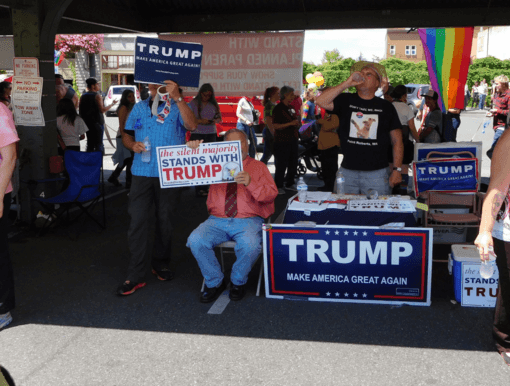
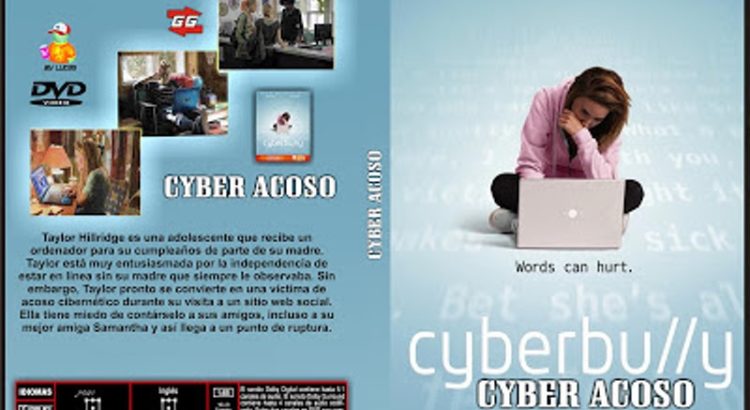

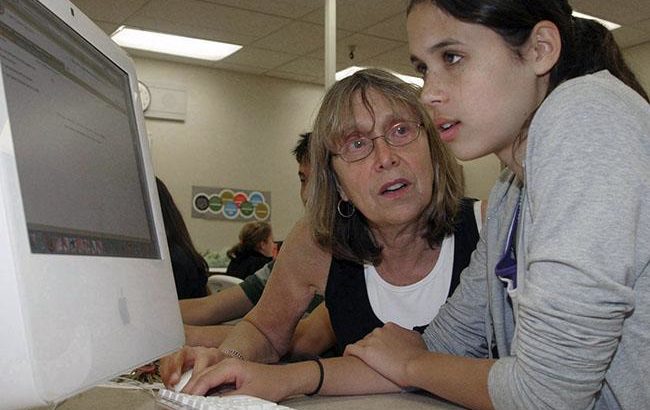

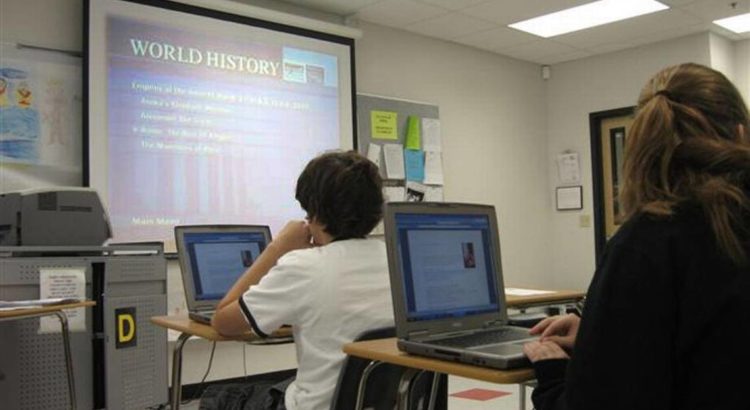
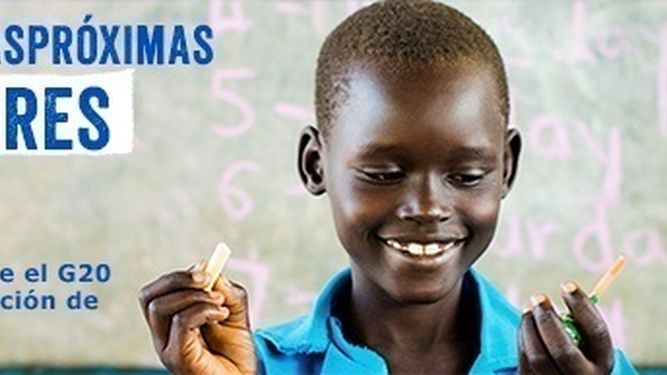






 Users Today : 26
Users Today : 26 Total Users : 35460483
Total Users : 35460483 Views Today : 46
Views Today : 46 Total views : 3419341
Total views : 3419341